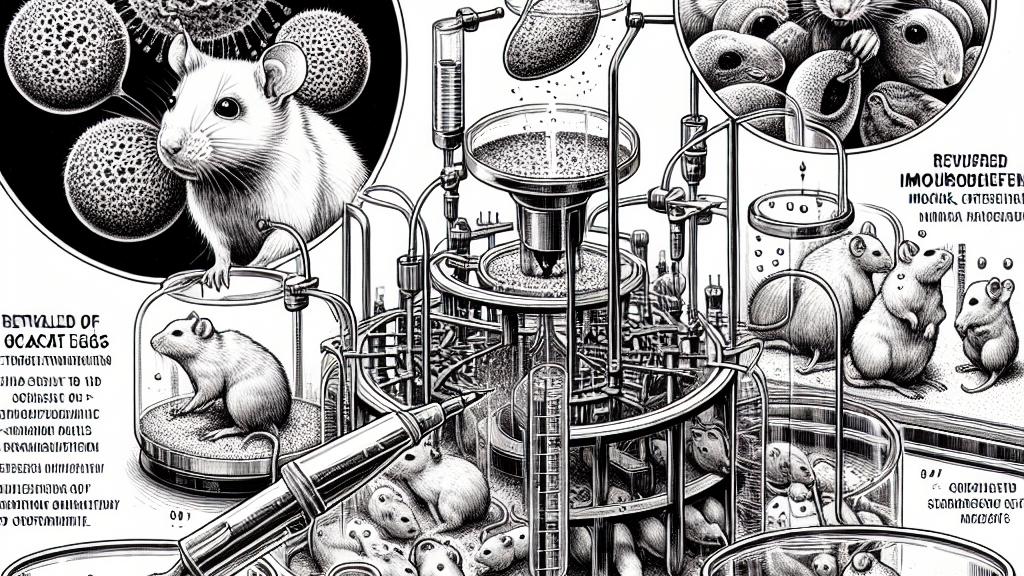Advancements in Cross-Species Reproduction Techniques
Overview
- Japanese researchers achieved an extraordinary milestone by producing rat offspring from ovarian oocytes developed in mice.
- This cutting-edge process involves transplanting rat ovaries into immunodeficient mice, showcasing its immense potential for genetic research and developments.
- The implications of this breakthrough could reshape both animal breeding practices and the future of reproductive medicine.

The Innovative Study in Japan
In an astonishing leap forward in reproductive science, researchers at Niigata University and the University of Toyama in Japan have successfully generated rat offspring from ovarian oocytes nurtured within mice. This innovative experiment involved the strategic transplantation of rat ovaries into immunodeficient mice, creating a controlled environment that allowed these ovaries to thrive. After administering carefully calibrated hormones to stimulate oocyte development, the researchers retrieved mature rat eggs, which were subsequently fertilized and transferred into surrogate female rats. Remarkably, this process culminated in the birth of healthy rat offspring, not only marking a significant success in xenotransplantation but also opening new avenues for genetic research and animal breeding.
Challenges and Triumphs
Despite the groundbreaking success, the journey was riddled with challenges that required innovative solutions. A critical hurdle was the necessity of harvesting mature eggs from the transplanted ovaries—an endeavor where timing was everything. For instance, while both mature and immature eggs could be collected, it was the mature eggs that held the key to successful fertilization and subsequent embryo development. This pivotal discovery highlighted the delicate balance within this intricate process. Through relentless experimentation and a willingness to learn from previous setbacks, the research team turned past failures into foundational knowledge, demonstrating that cross-species reproduction is not just a dream but a viable scientific reality.
Future Implications and Possibilities
The implications of this pioneering research extend far beyond the laboratory. This technique could usher in a new era for genetically modified animals, with potential applications ranging from organ transplantation solutions to vital insights into fertility and developmental biology across species. Imagine industries and scientific fields transforming as we develop tailored organs that meet individual needs—this is a future ripe with possibilities. There remains a cautious note regarding the ethical and safety considerations, particularly concerning the risk of disease transmission. However, the potential benefits are compelling enough to inspire further inquiry and exploration, promising exciting advancements in both medical science and animal husbandry that could reshape our understanding of life itself.

Loading...